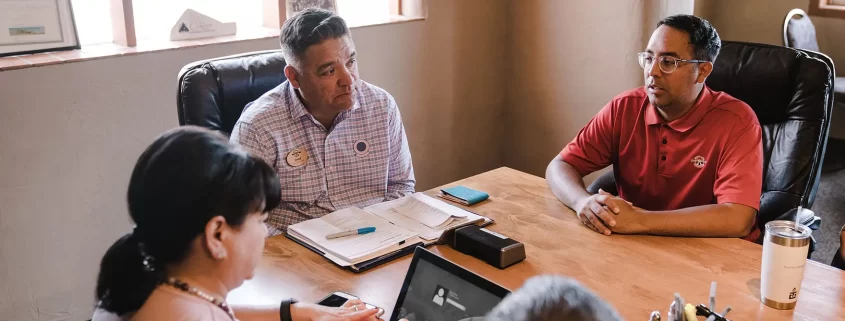Reaching Family Settlement Agreements in Estates
When a family member passes away, many factors can combine to create conflict over how to resolve the estate. Oral promises made by the decedent while alive, or a confusing portion of a will, or an apparent change in circumstances since the will was drafted, all can give rise to disputes over how the estate should be settled. In today’s blog, we will discuss how to reach a family settlement agreement designed to resolve the estate and avoid any dispute in court over an accounting.
Negotiating with family can be difficult. Negotiating over assets which might have changed in value can make these negotiations even more complicated. However, in a family settlement agreement, the parties agree that they will sign a document confirming the way that the estate should be settled rather than going to court. In some cases, this is done without any dispute at all. The parties each review the proposed settlement and confirm that they believe it is the appropriate way to distribute the estate assets. Additionally, they waive any claims against the executor of the estate in exchange for their share and confirm the way that all bills were paid and the way that the estate was handled.
 Of course, these decisions are not always so easy and can be drawn out in more complicated situations. An executor who proposes a breakdown that the beneficiaries believe does not follow the will appropriately might face an accounting action. If a dispute arises over how to finalize the estate, several things can be done to resolve the matter outside of court. First, the parties can negotiate between counsel for the beneficiaries and the executor. The probate attorney handling the estate represents the executor only and not the beneficiaries, so they will need to retain their own counsel. In a situation with multiple executors, and one in which those executors disagree, the executors may wish to seek their own counsel.
Of course, these decisions are not always so easy and can be drawn out in more complicated situations. An executor who proposes a breakdown that the beneficiaries believe does not follow the will appropriately might face an accounting action. If a dispute arises over how to finalize the estate, several things can be done to resolve the matter outside of court. First, the parties can negotiate between counsel for the beneficiaries and the executor. The probate attorney handling the estate represents the executor only and not the beneficiaries, so they will need to retain their own counsel. In a situation with multiple executors, and one in which those executors disagree, the executors may wish to seek their own counsel.
Second, the parties can seek a mediation and go before someone who is not attached to the situation at all and who can help work out the parties’ differences. A mediator should try to find a middle ground where the case can be settled. It is often said that a mediator’s best result comes when they find a resolution that does not please any party completely but that is better than the alternative of spending a lot of money and going to court. Compromise is usually involved, and it is important to remember that a mediation might not get you everything that you want as part of your final agreement. Still, mediations are convenient because they do not force anyone into a decision. They are an effort at finding an appropriate compromise after seeing the facts in light of an outside party’s perspective.
Finally, the parties can submit a dispute to a binding arbitration. The family may be able to pick a family member who is truly neutral or ask a pastor or other community leader to help them resolve the dispute. There also are companies which can be hired to send an arbiter to hear the dispute. With today’s modern technology, these arbitrations can even happen remotely without everyone having to gather in the same place.
There are many other potential ways to reach family settlement agreements, but these are some of the most common. If you are in a probate dispute, or if you believe that your matter can be worked out amicably without going to court but still wish to seek legal guidance, contact the estate administration attorneys at Cornerstone Law Firm to learn more today.



